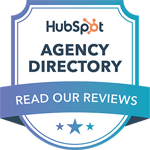
Content marketing is an indispensable tool for B2B companies seeking to generate more qualified leads. With many new tools, strategies, and channels emerging, businesses must have a clear and up-to-date content marketing strategy. Whether you're a seasoned pro or just stepping into the content marketing arena, this ultimate B2B content marketing strategy checklist will guide you to success.
Based on insights from the Content Marketing Institute, just 40% of B2B marketers have a written content marketing strategy. Interestingly, 64% of the top-performing B2B marketers do have one in place. They understand the significance of crafting and disseminating valuable, pertinent, consistent content to captivate potential customers.
The Essential B2B Content Marketing Strategy Checklist: 8 Key Points
Customer behaviors, search engine algorithms, and digital platforms continuously evolve, creating challenges and opportunities.
Here’s a B2B content marketing checklist to help you plan, execute, and monitor your content marketing endeavors. This checklist is divided into three sections: defining your strategy, implementing your plan, and analyzing and optimizing your approach.
Section 1: Defining Your Content Marketing Strategy
1. Identify Big Picture Goals
Set clear, well-defined business goals before embarking on your content marketing journey. While aiming high, be specific by following the SMART criteria, ensuring your objectives are Specific, Measurable, Achievable, Relevant, and Timely.
- Specific: Clearly define your objectives.
- Measurable: Establish metrics for success.
- Achievable: Set realistic, attainable goals.
- Relevant: Ensure your goals align with your business mission.
- Timely: Implement time frames for achieving these goals.

Don't settle for vague aspirations such as "acquiring new customers." Instead, quantify your objectives. How many new customers are you aiming for? How will you measure and track customer acquisition? At which stage of the sales funnel do you want these customers? What's a realistic timeline for achieving these goals based on historical data?
Next, align your business goals with your B2B content marketing objectives. Determine precisely how your content strategy will contribute to accomplishing your business objectives. Through this alignment, you'll begin to discern the tactics your content marketing requires
2. Determine Your Target Audience
The digital landscape is vast, with 8.5 billion Google daily searches and roughly 2 trillion global searches annually. To ensure that your content reaches the right audience, you must have a well-defined target audience represented by robust buyer personas.
Buyer personas are detailed profiles of ideal customers constructed through data analysis and insights. They enable you to segment your audience based on specific characteristics, needs, behaviors, and preferences, facilitating the creation of content that resonates deeply.

It's advisable to start with one or two primary personas, gradually delving into every aspect of their existence. Examine your existing customer list, an email database, potential leads, referrals, and third-party networks. Understand their backgrounds, roles, responsibilities, and preferred sources of industry information.
3. Conduct a B2B Content Marketing Audit
While crafting your content marketing strategy, take notice of the treasure trove of your past content. If you've been actively creating content, this can be a goldmine of insights. A content audit is akin to taking an inventory of your content assets, analyzing their performance, and making informed decisions based on the results.
During your B2B content audit, consider the following factors:
- Keywords: Are your keywords aligned with your objectives?
- Unique views: Identify which content drives the most traffic.
- Bounce rate: Is there content that brings visitors but fails to engage them?
- Internal and external links: What's the network of connections?
- Consistency of content: Is your messaging uniform?
- Social shares: Identify content that resonates with your audience.
This analysis will be the foundation for optimizing, expanding, or removing content pieces to enhance your strategy's effectiveness.
4. Keyword Research
Keywords are the building blocks of your content strategy. The keywords you choose influence your search engine rankings, helping you to be discovered by the right audience. In 2024, the emphasis is on understanding long-tail keywords and phrases, as 50% of search queries are four words or longer.
To conduct effective keyword research:
- Investigate your industry comprehensively
- Explore your business's suite of products and services
- Study your buyer personas meticulously
- Analyze search trends within your niche.
| Begin by generating a list of relevant topics and then identify keywords within those topics. For instance, if you operate in the marketing software sector, your topics may include "inbound marketing," "blogging," "SEO," and "marketing automation." Once you've established these topics, delve into finding keywords within each topic. Your choice of keywords should reflect your expertise and where you can offer the most value to your customers. |
Numerous tools can aid your keyword research:
- Keywordtool.io: Utilizes Google Autocomplete to generate a comprehensive list of relevant long-tail keywords.
- Google Ads' Keyword Planner: A free tool that provides cost-related information for keyword research.
- SERPS.com: Allows you to search for high-value keywords, enabling you to build a relevant keyword list.
- Ubersuggest: Offers keyword suggestions, provides insight into keyword ranking difficulty, and offers competitive intelligence
- AnswerThePublic: Offers valuable insights into keyword queries and content ideas by visualizing popular search queries.
5. Create Targeted Content
Now that you understand your audience and have a list of keywords, create content tailored to different stages of the buyer's journey. Consider the three key stages:
- Awareness: For new leads beginning to explore your offerings, provide free content like whitepapers, videos, kits, ebooks, etc.
- Consideration: In the consideration phase, leads already know your brand and seek more in-depth information to make an informed decision. Offer content demonstrating your value, such as case studies, samples, and webinars.
- Decision: The final stage is where leads are close to becoming paying customers. Seal the deal with content like demos, consultations, and free quotes.

Section 2: Implementing Your Content Marketing Plan
6. Content Promotion
The best content remains unnoticed without effective promotion. Once you've created your content, you need to ensure it reaches your target audience. Content promotion is as crucial as content creation. The following methods have proven highly successful:
- Social Media: Utilize social platforms to extend your content's reach. Share your blogs, link to landing pages, and introduce new services or products. Tools like IFTTT enable the automatic sharing of your content across various social media channels.
- Email Marketing: Email is a powerful channel for reaching your audience. Leverage the power of email marketing, as 77% of marketers have reported a boost in email engagement in the past year. Regularly send targeted emails to share your latest news, blogs, and services. Tools like MailChimp can help send regular emails to specific buyer personas.
- Paid Promotion: Consider paid promotions on platforms such as Meta Ads Manager, Google Ads, LinkedIn Advertising, and Outbrain to expand your content's reach.
- Influencer Marketing: Collaborate with key influencers and industry leaders to tap into their audience, increasing your brand's awareness. Tools like SocialTalk help identify and reach out to key influencers in your niche.
7. Repurpose Successful Content
Effective content marketing isn't solely about creating new material. Why limit your existing content to one format?
Successful content can be repurposed into various formats, extending its lifespan and broadening its impact. For example, a well-received blog post can be transformed into infographics, videos, podcasts, case studies, white papers, eBooks, webinars, and more. The key to successful repurposing is to present the content differently, providing added value in each format.
Section 3: Analyzing and Optimizing Your Content Marketing Strategy
8. Measure and Optimize
A content marketing strategy is only as effective as your ability to measure its success. To ensure you're on the right track, set key performance indicators (KPIs) for each goal using tools like Google Analytics.
Analytics tools are more sophisticated than ever, offering valuable insights into content performance. Use them to track metrics such as:
- Page views: Measure the popularity of your content.
- Unique visitors: Determine how many individuals engage with your content.
- Demographics: Understand your audience's characteristics.
- Bounce rate: Assess content engagement.
- Acquisition: Trace the sources bringing visitors to your content.
Remember to track metrics on social media, such as shares, followers, and comments. Additionally, monitor lead nurturing with metrics like Marketing Qualified Leads (MQLs), MQLs per channel, conversion rates between MQL to SQL (Sales Qualified Leads), email open rates, and click-through rates.
Regularly review and analyze these metrics to gauge your progress and effectiveness. Content marketing is an evolving process that demands ongoing refinement and innovation for optimal results.
Conclusion: The Road to B2B Content Marketing Success in 2024
A well-structured content marketing strategy is not a luxury; it's a necessity this year. It's your passport to connect with your target audience, build trust, and convert leads into loyal customers. What worked yesterday might not be effective today. By diligently following this B2B content marketing strategy checklist, you can make your content marketing efforts truly shine.
At KeyScouts, we support your journey to content marketing success in 2024 and beyond. If you ever need expert guidance or feel overwhelmed, don't hesitate to contact us. We're committed to helping you every step of the way.





